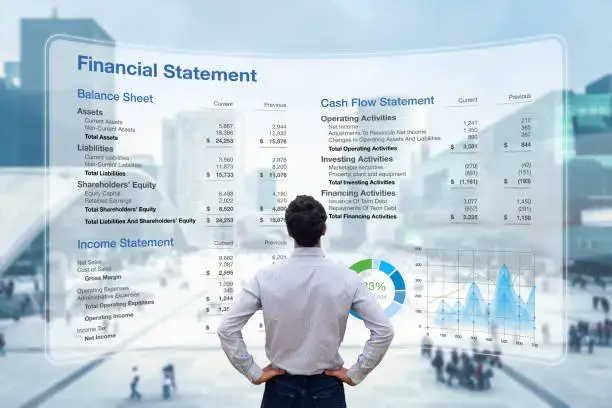How we handle money has changed a lot, from bartering to using physical currencies, and now we’ve arrived at the age of digital money.
This new form of currency has revolutionized how we transact by allowing us to make payments with just a few clicks on a computer or taps on a smartphone.
However, with the rise of digital money, questions have been raised about its authenticity and whether it’s just a collection of numbers on a screen.
In this article, we delve deeper into the world of digital money and uncover its impact on the economy.
We will also discuss the psychological effects of dealing with money that’s only visible in numbers.
Then, we’ll touch base on what the future holds for digital money.
Whether you’re a curious individual seeking knowledge or an investor looking to gain insight into the ever-evolving world of digital money, this article will provide a comprehensive understanding of the digital money phenomenon.
What is Money?
The first time I think I realized the true power of money was when I had it.
I was five, and my favorite aunt, who had just visited from Abuja, was on her way back.
She gave me an envelope that smelled of mint.
I was excited because that smell of new money would get a sick man back on his feet.
However, it was short-lived because I thought, like always, my mom would “keep it” for me, but not on this day.
She told me I could save and use it to buy whatever I wanted for Christmas.
I kept the smooth, fresh notes, filled with twenty naira notes, deep in my box, and as you can imagine, I was a regular five-year-old.
I got excited when I found out that to get all the candy and cookies I wanted, I had to go into my box and pull out a note.
Innovative Tech Solutions, Tailored for You
Our leading tech firm crafts custom software, web & mobile apps, designed with your unique needs in mind. Elevate your business with cutting-edge solutions no one else can offer.
Start NowLong story short, that cash only lasted three weeks.
But that was when I knew that money is a medium of exchange we use to transact with others to purchase goods and services.
Historically, this medium of exchange has taken many forms, including bartering, precious metals, paper currency, and now digital money.
Digital money is a currency that’s stored electronically and can be used to make purchases online or through mobile devices.
Unlike physical currency, digital money is intangible and only exists as a collection of numbers on a screen.
Although it’s easy to view digital money as just a string of numbers, it has become an integral part of our daily lives.
Its importance is growing as more people move towards a cashless society.
Read: 10 Must Watch Movies About Money

The Concept of Digital Money
Digital money is a new concept in finance that has emerged in recent years.
It refers to a currency entirely on screens and can be used for a wide range of transactions.
This includes online shopping, mobile payments, and international money transfers.
Unlike traditional money, digital money is intangible and can only be accessed through electronic devices such as computers, smartphones, or online wallets.
Digital money has revolutionized how we handle financial transactions.
It has made them faster, more convenient, and more secure than ever before.
The transactions can be completed in just seconds, eliminating the need for physical cash or checks.
This has led to a significant reduction in transaction costs.
It has also enabled people to make payments from anywhere in the world at any time.
However, its widespread adoption has also brought about new challenges and risks.
One of its most significant risks is the potential for cyberattacks and fraud.
After the day, I got debited some money from my account without making a transaction, and that was when I started asking questions.
First, I thought I was hacked, so I called my bank’s customer care, and they said there was no “suspicious activity” on my account.
This had to be a joke. So I headed to the bank and threatened some crazy if my money was not returned.
She asked me to check my account balance in what felt like the fastest minute of my life, and the money was back.
So, you mean, if you just press some numbers on your screen, money can just go in and out of my account?
Seamless API Connectivity for Next-Level Integration
Unlock limitless possibilities by connecting your systems with a custom API built to perform flawlessly. Stand apart with our solutions that others simply can’t offer.
Get StartedIs it that simple and easy?
Read: 13 Motivational Speeches About Money
The Impact of Digital Money on the Economy
There is something about money that we only see on our screens; it raises many challenges.
Concerns have been raised about the potential for fraud and money laundering, as well as the volatility of some cryptocurrencies.
Despite these challenges, the growth of digital money shows no signs of slowing down.
So, it’s important to understand its impact on the economy and how it can be used to drive economic growth and development.
In this article, we will explore the impact of digital money on the economy, looking at the benefits and challenges it brings and how it’s changing the way we do business.
Whether you’re a business owner, an investor, or simply curious about the future of society, we will provide you with a comprehensive understanding of the impact of digital money on the economy.
Read: 5 Ways To Make Money With ChatGPT
Positive Effects of Digital Money
Digital money has brought about several positive effects that have transformed how we handle financial transactions.
Speed and Convenience
One of the most significant benefits is its speed and convenience.
Transactions can be completed in seconds, eliminating the need for physical cash or checks.
This has made it easier for people to do business, make payments, and transfer funds across borders.
New Investment Opportunities
It has also opened up new investment opportunities, created new markets, and driven innovation in the financial sector.
Digital money has created a level playing field for investors, allowing them to invest in previously inaccessible markets.
This has democratized the investment landscape, giving everyone an equal opportunity to participate in the global economy.
Reduced Transaction Costs
Moreover, digital money has the potential to reduce transaction costs significantly.
With traditional payment methods, intermediaries like banks charge fees for processing transactions.
However, there are no intermediaries with it, and the fees associated with transactions are significantly lower.
This has enabled small businesses and entrepreneurs to participate in the global economy without being burdened by high transaction costs.
Promoting Financial Inclusion
Another benefit of digital money is that it can be used to promote financial inclusion through financial technology.
Millions of people worldwide lack access to traditional banking services, making it difficult for them to participate in the global economy.
It can potentially change this by providing access to financial services to previously excluded people.
In a nutshell, digital money has brought about several positive effects that have transformed how we do business and handle financial transactions.
Transform Business with Custom CRM & ERP Solutions
Elevate your operations with a CRM or ERP tailored for you. Let’s build the perfect solution that others can't replicate—crafted to match your business's needs like no other.
Get StartedIt also made it easy to understand that money is a token system that tracks value.
Nothing would be valuable if those numbers were not there, making the whole system questionable, right?
Read: How Do Banks Make Money?
Negative Effects of Digital Money
While digital money has brought about several positive effects, it has also brought about some adverse effects.
Fraud and Cybercrime
One of its most significant negative effects is the potential for fraud and cybercrime.
The anonymity of digital money transactions makes it challenging to trace the source of funds.
This makes it easier for criminals to engage in money laundering, terrorist financing, and other illegal activities.
Volatility
Another negative effect of digital money is its volatility.
Digital currencies like Bitcoin can experience extreme value fluctuations, making them a risky investment option.
This volatility makes it difficult for businesses to use digital currencies as a reliable medium of exchange or store of value.
Lack of Regulation
Moreover, it has also raised concerns about financial stability.
With digital money, there are no intermediaries, such as banks, to regulate the flow of funds.
This makes it more difficult for governments to monitor and control the economy.
This lack of regulation can lead to instability in financial markets, potentially causing economic downturns.
As the use of digital money continues to grow and evolve, it’s crucial to address these adverse effects to ensure its safe and responsible use in the global economy.

The Psychological Aspect of Money
Money is not just a financial concept but also has a significant psychological aspect.
It can influence our emotions, behavior, and decision-making processes.
The rise of digital money has brought about new ways to interact with money, further impacting your psychology.
Impulsive Buying
One of digital money’s most significant psychological impacts is its potential to promote impulsive buying behavior.
The ease and convenience of digital money transactions make it easy for people to make impulsive purchases without considering the long-term consequences.
Spending without physically seeing it leave your wallet or bank account is effortless, making it difficult to manage finances responsibly.
Perception of Value
Furthermore, digital money can also impact our perception of value.
With physical cash, we have a tangible representation of our money, which helps us understand its value.
However, it can be challenging to comprehend the value of money because it’s just numbers on a screen.
Tailored Tech Solutions to Drive Your Business Forward
Maximize your business potential with custom tech strategies. We deliver bespoke solutions that others can’t match, designed to solve your specific challenges with precision and impact.
Contact UsThis can lead to a distorted perception of value and make it difficult to manage finances effectively.
Control Over Finances
Moreover, digital money has also impacted our sense of control over our finances.
With traditional banking methods, people could physically visit a bank branch to manage their finances.
However, with it, people can manage their finances from their smartphones or computers, making it easier to access and manage their money.
While this may seem convenient, it can also lead to a lack of control over spending and a loss of connection to our finances.
In summary, the psychological aspect of money is a critical consideration in these times.
As we continue to adapt to the use of digital money, it’s important to consider its psychological impact and take steps to manage finances responsibly.
Final Words
In conclusion, the impact of digital money on the economy and our personal finances is undeniable.
It has brought about both positive and negative effects, and its psychological impact is an essential consideration.
While digital money has made transactions easier and more convenient, it has also raised concerns about financial stability, privacy, and fraud.
As we move forward in the digital age, it’s crucial to approach digital money with caution and responsibility.
We must take steps to manage our finances effectively and be mindful of its potential negative impacts.
By doing so, we can continue to enjoy its benefits while minimizing its negative effects.
Before You Go…
Hey, thank you for reading this blog post to the end. I hope it was helpful. Let me tell you a little bit about Nicholas Idoko Technologies.
We help businesses and companies build an online presence by developing web, mobile, desktop, and blockchain applications.
We also help aspiring software developers and programmers learn the skills they need to have a successful career.
Take your first step to becoming a programming expert by joining our Learn To Code academy today!
Be sure to contact us if you need more information or have any questions! We are readily available.









